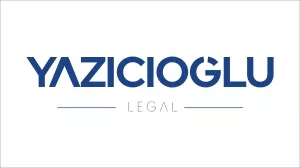A. Crypto currencies
1. Turkey bans crypto currencies to be used for payments
The regulation, which was issued by the Central Bank of Turkish Republic and entered into force as of April 30, 2021, bans crypto assets to be used for payments.
On the other hand, although the regulation does not prohibit investing on crypto currencies, it further restricts the electronic payment service providers to create or adopt business models in which crypto assets are payment instruments.
Although, it is highly criticised that Turkey's first piece of legislation on crypto currencies is a "ban", the regulation is the first in legally recognizing crypto currencies as "crypto assets" and defining them as "intangible assets that are created virtually using the distributed ledger technology or a similar technology distributed over digital networks, but does not considered as credit money, fiat money, electronic money, payment instrument, securities or other capital market instrument".
You can reach the full text of the regulation (in Turkish) via the link below:
https://www.resmigazete.gov.tr/eskiler/2021/04/20210416-4.htm
2. Crypto asset service providers are now subject to money laundering legislation
Turkey's money laundering regulation was amended on May 1, 2021.
With this amendment "crypto asset service providers" will now be directly liable in respect of the perform identification check as per their Know Your Client obligations, revealing the real beneficiaries of the transactions, monitoring the customer situation, and taking precautions against technological risks thereof.
You can find the full text of the amendment regulation (in Turkish) via the link below:
https://www.resmigazete.gov.tr/eskiler/2021/05/20210501-5.pdf
3. Turkish court decides that crypto assets are seizable!
A Turkish enforcement court of first degree ruled that crypto assets are seizable as they may be deemed as property and instrument.
We are of the view that both issuance of the new regulation and setting of a precedent indicate that crypto assets will come to the fore more frequently in terms of legislative activities and court precedents.
B. Data protection
1. Turkey to align with the GDPR within 1 year
"Economic Reform Programme" was published on the website of Ministry of Treasury and Finance ("Ministry") as of March 12, 2021.
The Ministry has announced that it aimed to amend the Personal Data Protection Law's ("DPL") provisions on data transfers abroad, which had been the most problematic issue in practice, so far. It is expressed that one of the main purposes of the reform programme is to align the data transfer provisions of the DPL with the European General Data Protection Regulation ("GDPR"), as this matter aggravates the compliance with the DPL for the most of the companies, in particular foreign-capitalized global companies.
Pursuant to the announced action plan, the steps on compliance with the GDPR provisions in terms of data transfers abroad are planned to be taken until March 31, 2022.
You can reach the full text of the Economic Reform Programme and the action plan (in Turkish) the via the link below:
https://ms.hmb.gov.tr/uploads/2021/03/Ekonomik-Reformlar-Kitapcigi.pdf
https://ms.hmb.gov.tr/uploads/2021/03/Ekonomi-Reform-Takvimi.pdf
C. Other
1. Advertisement Board publishes the first guideline on influencer marketing
It is fair to say that as of today influencer marketing is almost as important as the conventional marketing.
Although, influencer marketing should also be subject to regulation on advertisement, this aspect of influencer marketing was usually ignored.
For this reason, the Advertisement Board of the Ministry of Trade published on May 5, 2021 a business practices guideline that directly concerns advertisers, agencies, media, and influencers.
This guideline, namely the Guideline on the Commercial Advertising and Unfair Commercial Practices Made by Social Media Influencers ("Guideline"), regulates the procedures and principles of promotional activities made by influencers and the obligations of influencers and advertisers, in general.
You can find the Guideline and the full text of the announcement made by the Ministry of Trade on the Guideline (in Turkish) via the link below:
The content of this article is intended to provide a general guide to the subject matter. Specialist advice should be sought about your specific circumstances.


